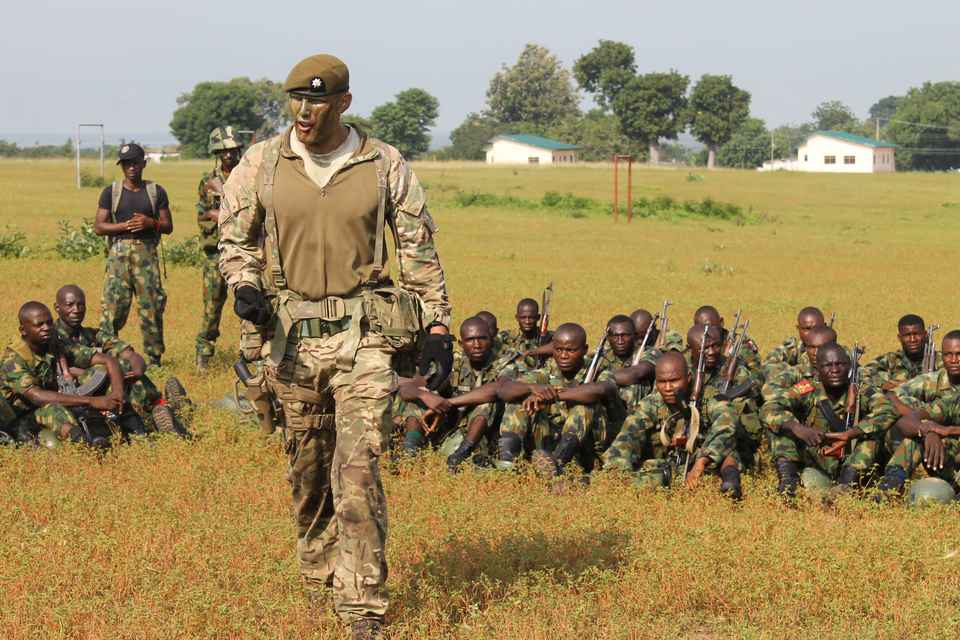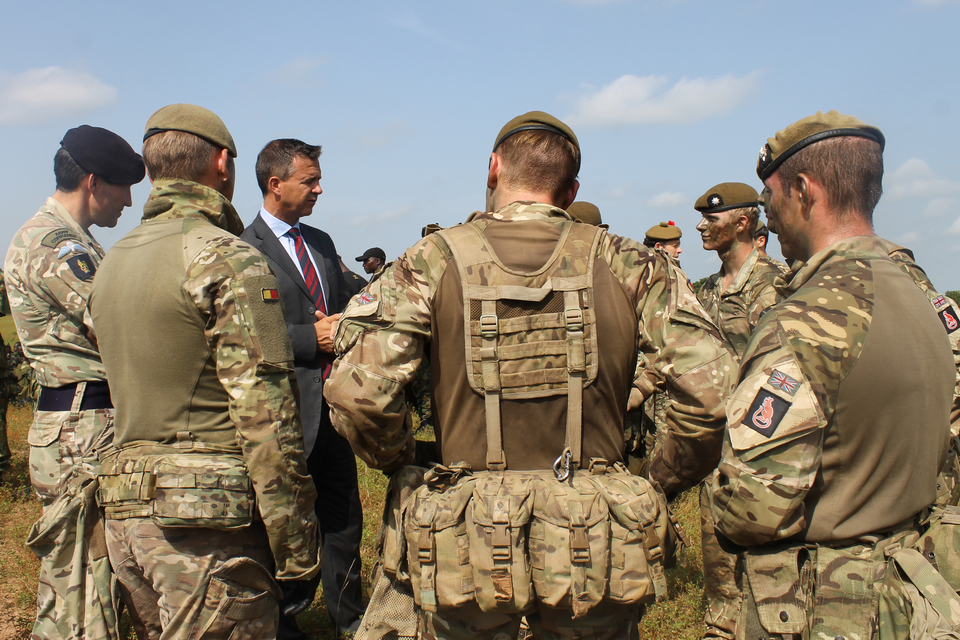A total of 50 members of the Armed Forces and one civilian have been named in the latest Operational Honours and Awards List.
The full list, which recognises and honours service on operations is below.
Commander of the Order of the British Empire (CBE)
Colonel Thomas Julian BATEMAN, MBE
Brigadier Robert Geoffrey LOWTH
Officer of the Order of the British Empire (OBE)
Major Simon Nicholas GUEST, Royal Army Medical Corps
Lieutenant Colonel Robert Keith TOMLINSON, MBE, Corps of Royal Engineers
Member of the Order of the British Empire (MBE)
Colour Sergeant Samuel Joseph McCORMICK, MC, Royal Marines
Surgeon Lieutenant Commander William SHARP, Royal Navy
Colour Sergeant George Ashley CHANNINGS, The Parachute Regiment
Major Michael John DEVENISH, The Rifles
Sergeant Dhaniram RAI, The Royal Gurkha Rifles
Military Cross (MC)
Marine Matthew David COTTRELL, Royal Marines
Acting Colour Sergeant Christopher MORRIS, Royal Marines
Colour Sergeant Simon Timothy COX, The Parachute Regiment
Queen’s Gallantry Medal (QGM)
Sergeant Matthew Peter DOUGLAS, The Parachute Regiment
Mention in Despatches
Sergeant Will PAGE, Royal Marines
Marine David WOTHERSPOON, Royal Marines
Lance Corporal Gwyn Michael DAVIS, The Parachute Regiment
Colour Sergeant Gavin Peter HAILEY, The Parachute Regiment
Colour Sergeant Adrian Marcus MILLER, The Parachute Regiment
Queen’s Commendation for Bravery
Lieutenant James Edward MYHILL, Royal Navy
Sergeant Mathew Robert LONGHORN, The Parachute Regiment
Captain Mark POWELL, The Royal Logistic Corps
Queen’s Commendation for Valuable Service
Lieutenant Commander James Alexander BROWN, Royal Navy
Chief Petty Officer Engineering Technician (Weapon Engineering) Darren John CULVERHOUSE, Royal Navy
Lieutenant Colonel Anthony Luciano DE REYA, MBE, Royal Marines
Leading Logistician (Supply Chain) Andrew James GILL, Royal Navy
Major Thomas Fergusson GLOVER, Royal Marines
Lieutenant Commander Ben Russell MARTIN, Royal Navy
Leading Medical Assistant Naomi MASON, Royal Navy Medical Service
Commander Richard Ashley NEW, Royal Navy
Acting Petty Officer Engineering Technician (Marine Engineering Submarines) Aaron SMITH, Royal Navy
Colour Sergeant Martin THOMSON, Royal Marines
Captain Benjamin Rogerson BARKES, The Light Dragoons
Colonel Nigel Jonathan BEST, OBE
Lieutenant Colonel Carl William BOSWELL, The Rifles
Sergeant David CLARK, The Royal Logistic Corps
Sergeant Matthew Peter COLLINS, Intelligence Corps
Corporal Luke John FLANAGAN, Royal Corps of Signals
Corporal Kieran Zen HAIG, The Royal Regiment of Scotland
Warrant Officer Class 2 Steven James MACTAVISH, The Royal Anglian Regiment
Corporal Christopher Carl MAY, The Rifles
Staff Sergeant Gary David MILES, Intelligence Corps
Acting Lieutenant Colonel Robert John NICHOLLS, The Parachute Regiment, Army Reserve
Lieutenant Colonel Edward David Lionel MASKELL-PEDERSEN, Royal Corps of Signals
Squadron Leader Thomas Charles John BENSON, Royal Air Force
Acting Flight Sergeant Stewart Andrew FORRESTER, Royal Air Force
Wing Commander Christopher John LAYDEN, Royal Air Force
Squadron Leader Gemma Ann LONSDALE, Royal Air Force
Squadron Leader Liam Anthony TAYLOR, Royal Air Force
Dr Gregory Benjamin FREMONT-BARNES, Civil Servant
NON-OPERATIONAL GALLANTRY
Queen’s Gallantry Medal (QGM)
Leading Seaman (Seaman Specialist) Sally Louise HUGHES, Royal Navy
Queen’s Commendation for Bravery (QCBA)
Sergeant Stephen John ALLCOCK, Royal Air Force

